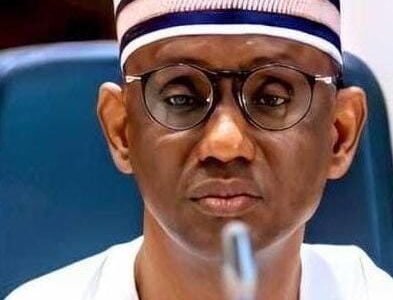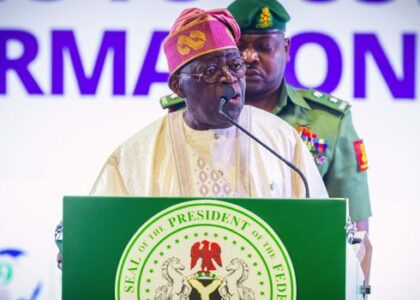The Niger coup and ECOWAS seemingly ill-advised kneejerk response have dominated the media space since the 26th day of July, 2023, when President Bozoum was overthrown by his own guards, and the 30th day of July, 2023, when ECOWAS had its first extraordinary meeting on the Niger question.
Needless to recount all the steps and missteps that have been taken by both the ECOWAS and the Niger Junta since the incident occurred, other than to state that ECOWAS appears to have set itself up by its premature threat of military action, should the junta not relinquish power within seven days of 30 August, 2023.
The failure or increasingly impossibility of ECOWAS getting its act together amidst the internal and external centrifugal and centripetal forces pulling ECOWAS in different directions, has not been helpful.
As if the blatant disregard of ECOWAS by the Junta was not enough, the Junta further dared ECOWAS by refusing to receive any of its Delegation until it was, perhaps, persuaded by certain influential Islamic leaders from Nigeria to reopen the channel of communication with ECOWAS.
In the ensuing escalation, the Niger Junta has found companionship with the Juntas in Mali, Burkina Faso and Guinea, as well as encouragement from certain States, which, though have not openly supported the coup, have opposed ECOWAS’ threatened military action in Niger. These dynamics and the obvious interest of Europe, America and Russia in the situation have raised concerns that ECOWAS military action, if it occurs, would throw the region into a proxy war zone with wider implications that ECOWAS alone appears not to be foreseeing. This is not to mention the inevitable humanitarian consequences that would attend upon such a military action.
When it appeared ECOWAS had listened to the voice of reasoning and backed down on its threat of military action in favour of dialogue, ECOWAS Military Chiefs met in Ghana on the 17 and 18 of August, 2023 only to announce its preparedness for the commencement of military action in Niger, though still not ruling out the possibility of dialogue.
Following this, there has been news of thousands of Nigeriens seeking to enlist in the military for the defence of their country against ECOWAS forces. Similarly, the news is out that Mali and Burkina Faso have deployed War Planes to Niger to fight on the side of the Junta.
These are ominous signs that should warn the ECOWAS Authority of Heads of States and Government on the need to pursue dialogue, rather than respond in like manner to the provocations of the Junta. If this situation is allowed to progress in this manner, with four member States (under military rule), that have already been suspended from ECOWAS openly confronting ECOWAS, it is not difficult to see how ECOWAS may just be gradually but speedily sliding into disintegration. It is not difficult to imagine the possibility of the suspended States exiting the organisation should pressure become too high on them. hopefully, it will not get to this.
The fear that the Niger question may have deleterious effects on ECOWAS is not without some historical antecedent. Historically, and as narrated by Yakubu Gowon, the Nigerian Head of State when ECOWAS was formed, a similar coup in Niger, almost prematurely aborted the plan to set up ECOWAS and did create serious difficulties for the leaders.
As equally recalled by Gowon, given the strong pressure by the French to dissuade Francophone West African States from embracing ECOWAS and the sentiment underlying the idea, it was most appropriate for Niger to host a crucial ministerial meeting set to hold between Apri1 25-30, 1974 to consider the draft treaty of ECOWAS, along with the recommendations that had been made by the experts in Accra. the choice of Niger was strategic, and intended to gain the support of the Francophone States of the region for the project, given the influence of President Diori among his counterparts. This was partly to counter the negative sentiment France was generating towards the idea. However, on April 15, 1974, President Hamani Diori was overthrown by Colonel Seyni Kountchel, following a coup d’etat in Niger. According to Gowon, ‘the sudden and unexpected removal of such a key and widely respected political figure in West African politics, and at this critical stage in the formation of ECOWAS, seemed even to threaten the future of the organisation’.
Expectedly, the new government in Niger declined hosting the meeting, after initially postponing it. But for the unrelenting efforts of the Nigerian government and the magnanimity of Liberia to host the crucial meeting, the Niger coup, given the dynamics of the time, could have frustrated the plans to form ECOWAS or unduly delayed its formation.
ECOWAS is at that point again when ECOWAS has to take deliberate and well-advise steps to handle yet a Nigerien coup with the sensitivity it deserves. Needless to say that there was no talk of intervention in 1974 in that coups were yet seen as a purely domestic affair of the State.
There are however some similarities between the 1974 situation and now – in 1974, the main actors were the Nigerian Head of State (Yakubu Gowon), who was at the forefront of the formation of ECOWAS, while France played a spoiler role. Similarly, in the current situation, the Nigerian President Tinubu is at the forefront of the ECOWAS response, while France is latently at the centre of the Nigerien question (and the coups in the three other member States), which is being seen as a revolt against France. Interestingly, the same France that vehemently opposed the creation of ECOWAS and has continuously done all within its powers to sabotage it, is now prodding ECOWAS to fight its battle.
Unfortunately, the current Nigerian President seems not to appreciate the sensitivity of the situation and does not appear circumspective enough to speak and walk cautiously as did the Nigerian Head of State of the formative years of ECOWAS. We would therefore like to call on the Nigerian President, as the leader of ECOWAS, to quickly learn to act and lead ECOWAS cautiously in approaching the Nigerien coup standoff. It is no too late for him to quickly seek the counsel of Gowon, who, happily, is still alive and able to counsel at this time.
Unfortunately, even before the first bullet is fired, ECOWAS has lost its purpose and authority on the matter as well as sustained reputational injuries (in the minds of its citizens within and outside Niger) that may take a very long time to heal. We believe there is still room enough for ECOWAS to halt the threat and support a quick transition in Niger.
The time to stop a coup in member States is for ECOWAS to speak up when a civilian president rigs himself/herself into office; when the constitution is amended at the behest of the incumbent for the purpose of tenure elongation; when the leaders are busy dinning with corruption at the expense of an impoverished population; when the rule of law is forsaken; and when human rights are wantonly violated. As recent experiences have mostly shown, it is always too little too late to grandstand when the foreseeable but preventable has happened.







